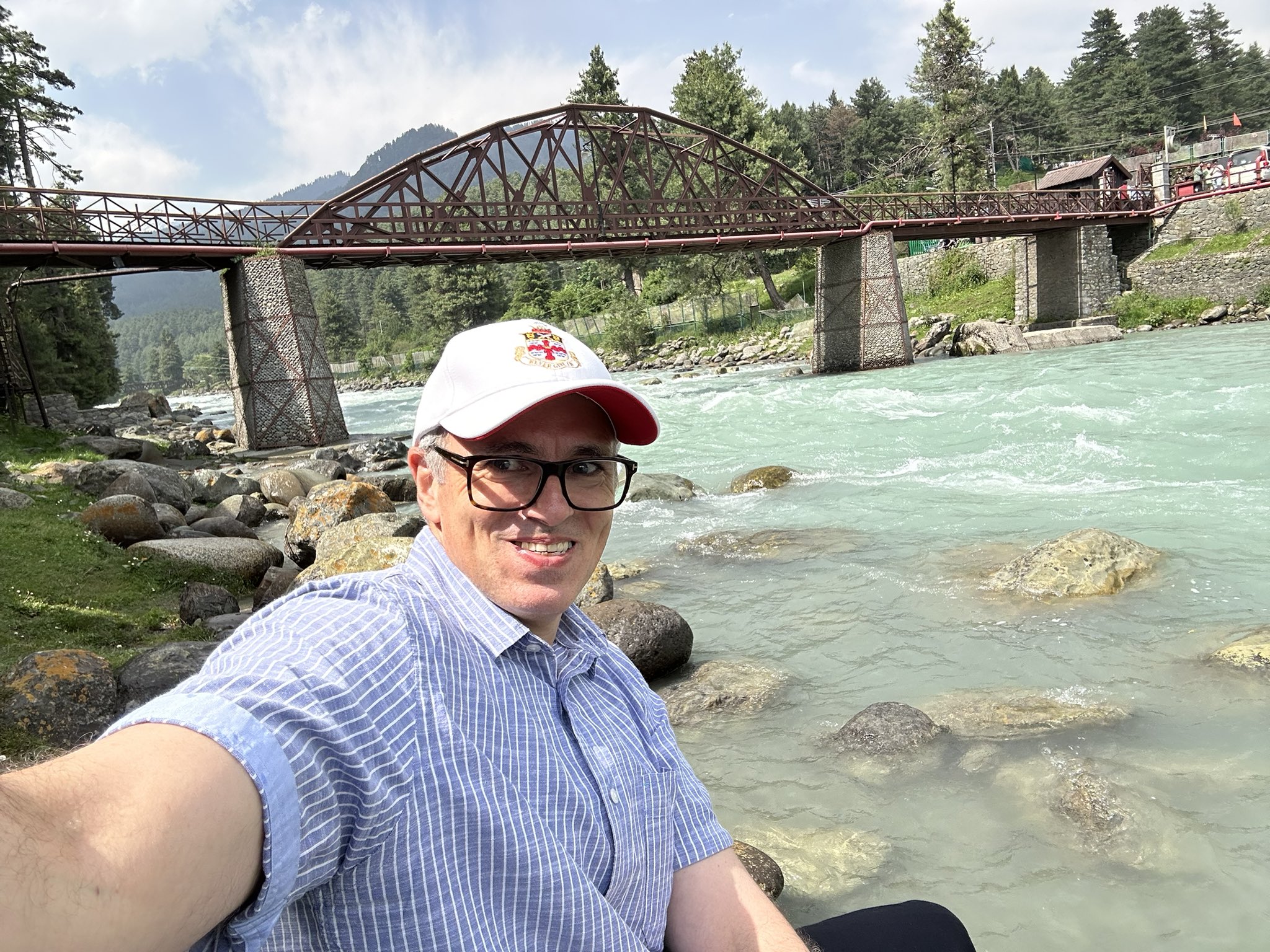Big Picture: Omar’s Pahalgam Visit Amplifies India’s Unified Stand on Terrorism
In a powerful visual message from the banks of the Lidder River, Jammu & Kashmir Chief Minister Omar Abdullah returned to Pahalgam, the site of the April 22 terror attack, to chair a cabinet meeting and express solidarity with residents and tourists.
Sharing a photo of himself in front of the river and bridge that define Pahalgam’s serenity, Omar said, “We came to express solidarity with the local population. We’ve also come to thank all the tourists who are slowly making their way back to Kashmir & to Pahalgam.”
 |
| Image Source: OA on X |
This moment, while personal and local, intersects deeply with India’s current global strategy — projecting a collective voice against cross-border terrorism. As Kashmir slowly, very slowly, heals, or at least pretends to heal, for want of daily needs, tourists, business and life to go on as usual, New Delhi has escalated its multilateral diplomacy.
The All-Party Parliamentary Delegation, comprising leaders from across the political spectrum, has travelled across continents from the US and France to Congo and South Korea, delivering a single message: zero tolerance for terrorism.
The campaign — sparked by the Pahalgam attack and India's precise retaliatory strike, Operation Sindoor — has found traction in multilateral forums and bilateral engagements. Leaders like Shashi Tharoor in Guyana, Sanjay Jha in Seoul and Baijayant Panda in the Gulf have made India’s case for dismantling terror infrastructure with sober urgency.
But Omar Abdullah’s presence in Pahalgam is a domestic show of solidarity, unity and normalcy. As the Indian Parliament speaks abroad, Abdullah signals strength from within. His gesture should give strength to parliamentarians and guide them in what India has been diplomatically asserting abroad: that peace in Kashmir is central to peace in the region.
India’s outreach today shows a country that is unwilling to be provoked into reckless escalation, but equally unwilling to let terror shape its destiny. This is a nation that has been bleeding quietly for too long — now it is healing aloud, with resolve. And, national unity is its guiding light in this unprecedented push against terror on global stage.
(Saket Suman is the author of The Psychology of a Patriot. Among other roles, he was a Special Correspondent at The Times of India and the head of Arts/Books/Culture verticals of what was India's largest independent newswire.)
(Views Expressed Are Author's Own and Do Not Reflect The Views of This News Outlet)
